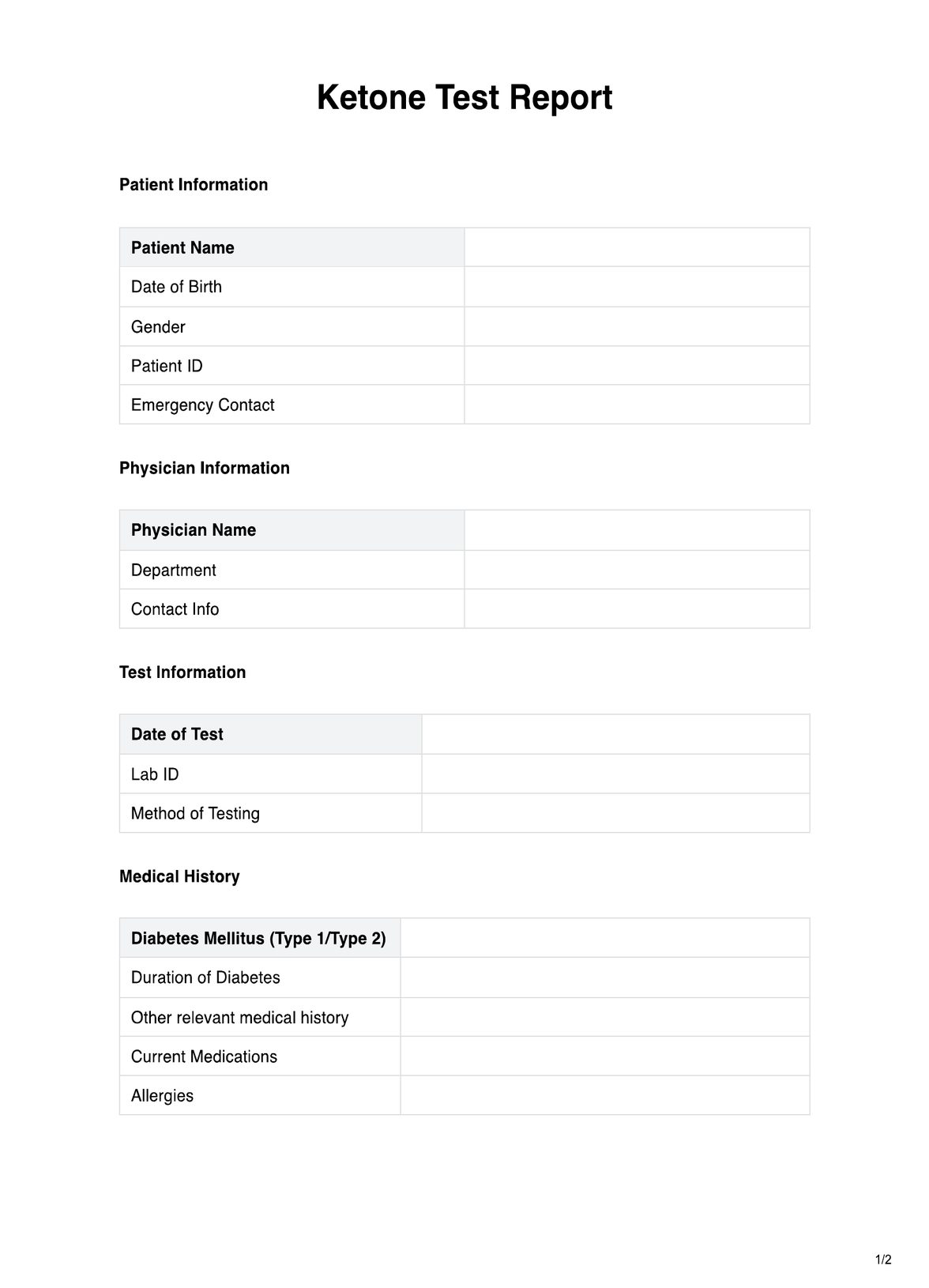Ketone tests are typically requested by individuals with diabetes or those on a ketogenic diet.

Understand your body's energy usage with a Ketone Test. Monitor ketone levels in your blood or urine to manage diabetes, evaluate diet effectiveness, and more.
Ketone tests are typically requested by individuals with diabetes or those on a ketogenic diet.
Ketone tests are used when monitoring diabetes management or assessing if the body is in a state of ketosis.
Ketone tests are used by dipping a specially treated strip into a urine sample or by drawing blood and sending it to a lab for analysis.
EHR and practice management software
*No credit card required
Free
$0/usd
Unlimited clients
Telehealth
1GB of storage
Client portal text
Automated billing and online payments